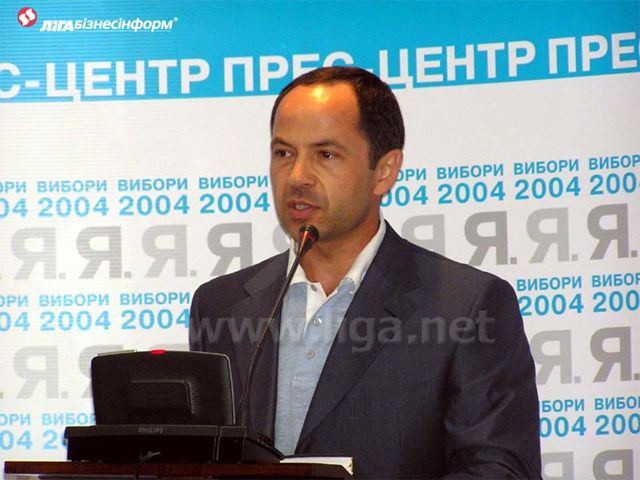
IMF Approves New Loan for Ukraine
Publication: Eurasia Daily Monitor Volume: 1 Issue: 151
By:

On July 28, the International Monetary Fund (IMF) approved a $15 billion loan for Ukraine, as most observers expected (EDM, July 21). Ukraine received the first $1.9 billion tranche almost immediately, Serhy Tyhypko, the Deputy Prime Minister in charge of economic reform, announced (Ukrainski Novyny, August 2). The second tranche should arrive in December and the remainder will be received in 2011-2012 if the reforms continue in Ukraine. The positive decision by the IMF means that Kyiv is trusted, which will serve to encourage other lenders and investors. Ukraine’s international credit ratings have started to grow thanks to the IMF loan. The economy ministry hopes to reach agreements with foreign lenders to take new loans totaling some $3.9 billion (www.utro.ua, July 30).
“The authorities are committed to addressing existing imbalances and putting the economy on the path to durable growth through important fiscal, energy, and financial sector reforms,” IMF acting chair, John Lipsky, said (RBC, July 29). The IMF loan will support the government reform plan, which provides for reducing the budget deficit from 5 percent of GDP in 2010 to 3.5 percent in 2011 and further to 2.5 percent in 2012. The deficit of the state-controlled oil and gas behemoth, Naftohaz Ukrainy, has to be reduced from 2.5 percent of GDP in 2009 to 1 percent this year and to zero next year.
The plan also provides for stabilizing the banking sector which includes bank recapitalization. In July, parliament, in order to qualify for the loan, cut the 2010 state budget deficit to 5 percent from 5.3 percent and passed legal amendments increasing the central bank’s independence from political parties. In order to reduce the deficit of Naftohaz, which was obliged to sell gas domestically for prices lower than those paid to Russia for gas deliveries, the government significantly increased domestic gas prices. The price for households was increased by 50 percent (www.nerc.gov.ua, July 13). The government cancelled discounts for the metals and chemicals industries, and consequently their gas prices soared by 23 percent. Also, from August 1 the government increased gas prices for all industrial consumers by 10 percent (Kommersant-Ukraine, August 3).
Such unpopular measures would have been unthinkable under the former Prime Minister, Yulia Tymoshenko, who was ousted in March following the presidential election victory by her arch-rival, Viktor Yanukovych, in February. It was mainly because of Tymoshenko’s populist policies including her refusal to increase gas prices that the previous IMF loan for $16.4 billion, approved in 2008, was frozen last year. Tymoshenko kept gas prices artificially low because she hoped to win the presidency.
Yanukovych and the cabinet of his loyalist Prime Minister, Mykola Azarov, are fortunate in this respect. They can ignore popular discontent, because they have a window of opportunity to take unpopular measures in the economy as the next parliamentary elections should be held only in 2012 and the presidential elections are due in 2015. As for the local elections scheduled for this October, the ruling Party of Regions has done everything to secure its victory by changing the election rules (EDM, July 16).
In anticipation of the IMF decision, the Fitch rating agency in early July upgraded Ukraine’s sovereign credit rating to “B”. Another rating agency, Standard and Poor’s, upgraded Ukraine’s rating to “B+” following the news of the loan approval. This is a rating which Ukraine had in June 2008, several months before the financial crisis hit the country (Kommersant-Ukraine, August 2). This should make loans for Ukraine cheaper, allowing the finance ministry to consider reversing its decision taken in mid-July to drop the plan to issue ten-year Eurobonds worth $2 billion. Azarov said that the issuance of Eurobonds by the end of 2010 is not ruled out (UNIAN, July 29).
The positive decision by the IMF means that Ukraine should also receive loans from other international institutions in 2010, which may help its economy to recover faster as a result of the financial crisis (during which GDP plunged by 15 percent in 2009). Tyhypko said that 610 million Euros should arrive from the EU, and the World Bank should lend $800 million by the end of 2010 (UNIAN, July 22). These loans were contingent upon the IMF’s decision. The European Bank for Reconstruction and Development announced on August 2 that it is considering lending 450 million Euros to Ukraine to upgrade motorways near Kyiv. The bank’s board is scheduled to take the final decision on September 28. The European Investment Bank is expected to contribute the same sum to the project (Interfax-Ukraine, August 2). The cabinet calculated that if all these loans are received, public debt will reach 40 percent of GDP by early 2011, considered to be a safe level for the economy (Interfax-Ukraine, July 22).




